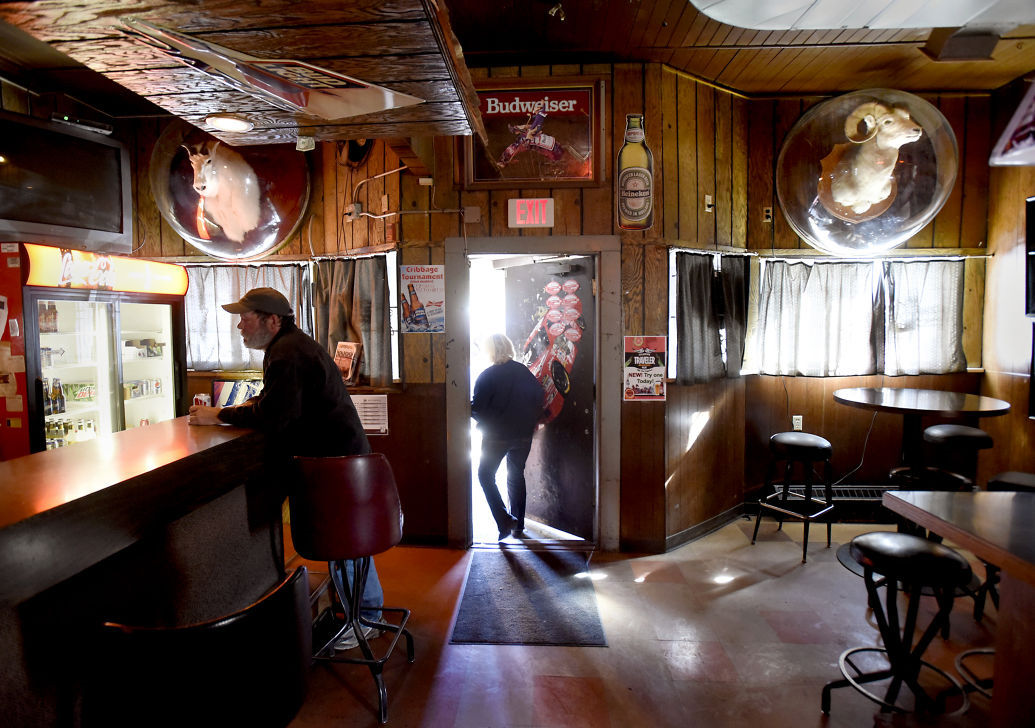|
Reading The Last Resort has inspired Tim Cooper, of Oakdale, Minn., to reflect on what it means to put words on paper and how meeting an esteemed poet in a neighborhood bar at age six awakened his poetic sensibilities.
I have been thinking about essays. The etymology of essay—from the French verb essayer, meaning “to try”—incorporates the idea of experimenting with something, or attempting something new. Most essays delve into new ways of thinking about a subject, sometimes playing with a new narrative technique or voice. In the end, an essay is a thought experiment, an attempt to gain a greater understanding of oneself and one’s position in the world. Dedicated readers of “Clearing the Fog” are well aware of the disparate voices that cascade through this blog. David Hoefer applies his analytical bent to subjects as diverse as Steinbeck, fishing, and Pud’s cars. Bob McWilliams, Roi-Ann Bettez, Joe Ford, and others lead us to consider “a portion of unexamined existence,” as James Agee described his subject in the preface to Let Us Now Praise Famous Men. I suspect they would all tell us that their responses to Pud’s writing, their observations, are simply personal mental calibrations elicited by the descriptions of life at The Last Resort. Agee goes on to say that his compilation of his stories and Walker Evans’ photos depicting the lives of several families in rural Alabama during the Great Depression “is a book only by necessity. More seriously, it is an effort in human actuality, in which the reader is no less centrally involved than the authors and those of whom they tell.” Likewise, Goodlett incorporated maps and drawings and lists of flora and fauna in his camp journal for his own reference, but perhaps also to draw any future reader into the experience of life at the camp. In its published form, The Last Resort, too, “is a book only by necessity.” I am currently rereading Charles D’Ambrosio’s phenomenal collection of essays, Loitering. One of D’Ambrosio’s essays—indeed, my favorite—is entitled “Degrees of Grey in Philipsburg.” It is a marvelous explication of Richard Hugo’s poem by the same name, and much like The Last Resort, it incorporates photography, notes, and the entire poem within its frame. It is Agee’s “effort in human actuality” in the best sense of that phrase, and it prompts me to relate a personal story. I must have been six or seven years old. My father was a visiting professor at the University of Montana, and we lived in Missoula. I love to recall that I had a mountain as a backyard. In those days, there wasn’t much protest when an adult brought a child into a bar. My father, and many others at the university, was pulled into the orbit of a rural, working class bar just outside Missoula. After teaching and giving private music lessons all day, my father would round me up and head to the Milltown Union Bar for a beer and conversation. There, late one afternoon, my father engaged a rather portly, balding man in intense conversation. I have no idea what they talked about. But after finishing his beer and getting us in the car, I apparently burst into tears. My father asked me what was the matter, and I could only respond that he had just spoken to the saddest looking man I had ever seen. Years later, when he reminded me of that story, my father also let me know that the man to whom he was speaking was Richard Hugo, poet-in-residence at the university, and now one of the most highly regarded poets our country has produced. His poems “Degrees of Grey in Philipsburg” and “The Milltown Union Bar” remind me of the portion of my youth spent in that region of graying, abandoned towns. If I could tell this story correctly, if I could write this essay properly, you would see an empty glass of beer in front of you, and you would choke on the acrid cigarette smoke. A poet would be sitting next to you, spinning lines. And the actuality of that world would prompt you to reconsider your own.
2 Comments
David Hoefer
9/5/2018 06:14:59 pm
Thanks for this, Tim. I hadn't thought about Hugo in years but, yes, he was a fine poet. Somebody - maybe Don Boes? - flipped me a copy of The Triggering Town a long time ago and I was impressed by it too. How strange you met the man young and his mere sight and manner moved you to tears. You may have told your story more correctly than you realize.
Reply
Timothy Cooper
9/6/2018 12:43:37 pm
David:
Reply
Your comment will be posted after it is approved.
Leave a Reply. |
Details
Archives
June 2023
Categories
All
|



 RSS Feed
RSS Feed